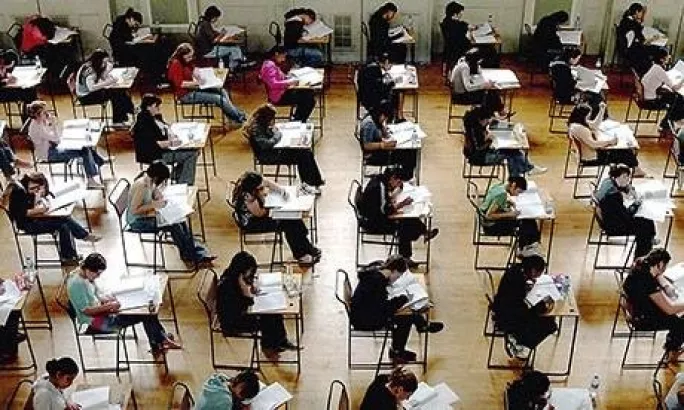Independent schools could drop A-levels in protest against reforms
A growing number of independent schools are considering ditching A-levels in response to the turmoil over reforms to the qualification.
Dissatisfaction over elements of the changes - particularly the government’s decision to “decouple” AS- and A-levels - has led some schools to consider alternatives, including the international A-level.
Alice Phillips, headmistress of St Catherine’s in Bramley, Surrey, and president of the Girls’ Schools Association, said her biology department planned to switch to the international A-level next year. The school’s other two science departments were also considering switching, while the English department was “looking very seriously” at international A-levels, she added.
Ms Phillips said teachers had been unhappy about the decision to end the link with AS-levels, which previously counted towards the final A-level grade.
“We have found [AS-levels] to be quite encouraging for students,” Ms Phillips said. “It tells you whether you are on the right track.”
The international A-level is run by Cambridge International Examinations and offers both linear and modular options. The number of UK schools entering students for international A-levels is still small - 150 - but rose by 50 per cent in the past year alone. Worldwide the qualification is taken by more than 1,600 schools in 125 countries.
The vast majority of UK schools offering the qualification are independent schools. The international A-level is not accredited for use in the state sector, meaning schools are not funded to deliver it.
St Albans School started teaching the international A-level in biology this September, and headmaster Jonathan Gillespie said other departments were considering following suit.
He said unhappiness over the content of the A-level course was the prime driver behind the switch. “Our biology department got fed up with the hoop-jumping with the existing A-level and the perceived hoop-jumping with the new one, and they felt they were doing practicals for the sake of it,” he added.
“The international A-level is a much better course and they’re hugely enthusiastic about it.”
The A-level reforms are being phased in over the next three years, but schools are yet to receive the final specifications for the first wave of subjects, which will be taught next September.
Bernard Trafford, headmaster of the Royal Grammar School in Newcastle, said unhappiness about the way the reforms were being implemented had prompted his school to look at alternatives to A-levels.
He said there was particular concern over the decision to stagger the changes, which meant next year many students would be taking a mixture of linear and modular A-levels.
“It is a mess and as usual teachers and schools have got to sort it out,” said Mr Trafford, former chair of the Headmasters’ and Headmistresses’ Conference. “I’m urging all my heads of department to look at A-levels, pre-U and international A-levels to find the best package for us.”
Peter Hamilton, headmaster of the Haberdashers’ Aske’s Boys’ School in Hertfordshire, said that although his school did not plan to switch to the international exam, it would wait to see the content of the new A-levels.
He added that schools were increasingly likely to pick and mix their preferred courses from the range on offer. “I would not be surprised if there were some quite mixed portfolios in future,” he said.
Related stories:
Independent schools abandon GCSEs for international alternative - 30 August 2014
Top independent schools plan to ditch A levels because of Gove reforms - 13 August 2013
Keep reading for just £1 per month
You've reached your limit of free articles this month. Subscribe for £1 per month for three months and get:
- Unlimited access to all Tes magazine content
- Exclusive subscriber-only stories
- Award-winning email newsletters




